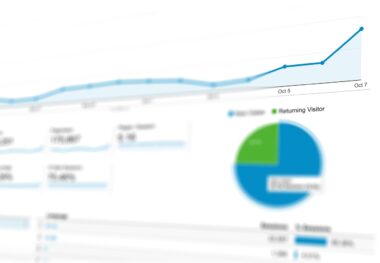The Role of Data Analytics in Improving Product Marketing ROI
In today’s competitive marketplace, understanding the role of data analytics in improving product marketing ROI is essential for any business. By maximizing marketing effectiveness, businesses can significantly enhance their profitability. Gathering insights from quantitative data enables marketers to make informed decisions based on trends and customer reactions. This data-driven approach allows organizations to identify which strategies yield the highest returns, thus optimizing marketing budgets. Marketers can utilize sophisticated tools to analyze campaign performance metrics, determining which channels produce the best engagement and conversion rates. Additionally, data analytics provides insights into customer behavior, enabling marketers to tailor campaigns specifically to meet consumer needs. For instance, segmentation analysis can reveal target demographics most likely to convert. By leveraging such analytics, marketers can craft personalized marketing messages that resonate with their audience. Ultimately, an analytical approach shifts focus away from gut feeling to a more scientific avenue of strategy development. As a result, businesses can allocate their resources more effectively, ensuring that each marketing dollar spent works harder to generate profitable returns.
Furthermore, data analytics empowers marketers to conduct A/B testing effectively, allowing them to optimize campaigns by comparing two variations to determine which performs better. This method not only improves individual campaign performance but also enhances overall marketing strategies. By regularly leveraging these insights, companies can adjust their marketing initiatives in real-time, becoming more agile in response to market shifts. The importance of tracking return on investment cannot be overstated; companies that are passionate about data analytics can pinpoint which strategies are productive and which are not. Armed with this knowledge, marketers can refine their messaging and targeting approaches to drive higher engagement rates. The continuous analysis of campaign performance leads to improved customer satisfaction and brand loyalty as businesses begin to forge deeper connections with their audience. Moreover, such practices ultimately contribute to improving ROI across all marketing efforts, reinforcing the significance of embracing data-driven methodologies in product marketing. As marketing continues to evolve, companies must invest in the analytics frameworks that will propel their efforts to new heights.
Moreover, the integration of advanced analytics tools facilitates the gathering and processing of vast amounts of data from various sources. These tools offer businesses the ability to track customer journeys across multiple channels, providing essential context to marketing efforts. Understanding how customers interact with different touchpoints enables more tailored marketing strategies. For instance, analyzing the customer journey can reveal points where potential clients drop off, providing opportunities for marketers to intervene with targeted messages or promotional offers. This proactive approach increases the likelihood of re-engaging those lost customers and ultimately leads to higher conversion rates. Furthermore, integrating predictive analytics can aid in anticipating future consumer behaviors, offering insights that allow marketers to stay one step ahead. By understanding probabilities and trends based on historical data, businesses can allocate budgets accordingly and prioritize initiatives that promise higher returns. Ultimately, embracing data analytics not only optimizes current marketing efforts but also lays the foundation for more strategic planning and efficiency in future campaigns.
Customer Segmentation and Personalization
One of the most significant advantages of using data analytics in product marketing is the ability to improve customer segmentation and personalization. By categorizing customers based on demographics, psychographics, and purchasing behavior, marketers can create targeted campaigns that resonate with specific groups. Analytics enable businesses to move beyond one-size-fits-all marketing approaches, allowing for customized messaging that speaks directly to various customer segments. For example, a clothing retailer might analyze purchasing patterns of its customers to offer tailored promotions on products that align with their interests or previous purchases. This personalization fosters a deeper consumer connection, enhancing engagement levels, and driving sales. Additionally, data analytics helps in identifying emerging trends among different demographic segments, enabling marketers to adjust product offerings proactively. Such adjustments can respond to changes in consumer preferences quickly, keeping brands competitive. Ultimately, personalized marketing efforts supported by robust analytics not only lead to increased sales but also contribute to stronger brand loyalty and improved ROI, creating a win-win for both businesses and customers alike.
Furthermore, advanced analytics tools allow marketers to evaluate the effectiveness of various channels. Understanding how different platforms perform in reaching target audiences is crucial for campaign optimization. This insight means companies can focus their resources on channels delivering the highest ROI, eliminating wasteful spending on less effective methods. For instance, a business may discover that email marketing generates better customer engagement than social media for a specific demographic. Consequently, it can reallocate its budget to prioritize email campaigns, contributing to improved overall ROI. Additionally, the ability to measure performance in real time ensures marketers can adjust strategies promptly rather than waiting for campaign completion to evaluate outcomes. Overall, leveraging data analytics provides key insights that drive smarter marketing decisions, focusing on initiatives with proven effectiveness and profitability. Such strategic allocations are more critical than ever in today’s fast-paced digital landscape, where agility can significantly enhance a business’s competitive edge. By continuing to analyze data, companies can ensure their marketing efforts align with evolving consumer preferences and maximize returns on investment.
Enhancing Marketing Strategy
Integrating data analytics into marketing strategies results in enhanced decision-making capabilities. By utilizing data visualization tools, marketers can easily interpret complex datasets, allowing for more meaningful insights. This clarity in data interpretation promotes collaborative discussions among marketing teams, leading to more informed decision-making. Furthermore, through the implementation of data analytics, organizations can establish clear KPIs to measure and track marketing performance effectively. These performance indicators not only provide visibility into the success of various initiatives but also equip marketers to pivot strategies if necessary. Ultimately, fostering a culture of data-driven decision-making can elevate the effectiveness of marketing strategies immensely. The emphasis on continuous monitoring and evaluation ensures that strategies remain relevant and competitive in rapidly changing markets. Businesses can thus remain proactive rather than reactive to market fluctuations, ensuring sustainable growth. As more organizations recognize the potential of data analytics, the competitive landscape continues to evolve, offering businesses the chance to stand out through informed and responsive marketing efforts.
In conclusion, harnessing the power of data analytics significantly enhances product marketing ROI by providing actionable insights that drive effective marketing strategies. Businesses are encouraged to invest in advanced analytical tools that facilitate the analysis of various datasets. These practices enable the identification of successful marketing channels, customer segments, and emerging trends critical for maintaining a competitive edge. Efforts should be concentrated not only on gathering data but also on analyzing and applying these insights systematically. This approach will create campaigns that speak directly to consumer needs, preferences, and behaviors. By fostering a culture that values data-driven decision-making, companies can adapt to changes in real-time and optimize their marketing functions for improved performance. As companies strive for improved ROI, it is critical to consider the long-term investment in analytics structures to support these goals. Ultimately, product marketing success hinges on the ability to leverage data effectively—a skill that distinguishes top-performing organizations in an increasingly data-rich marketing landscape.





